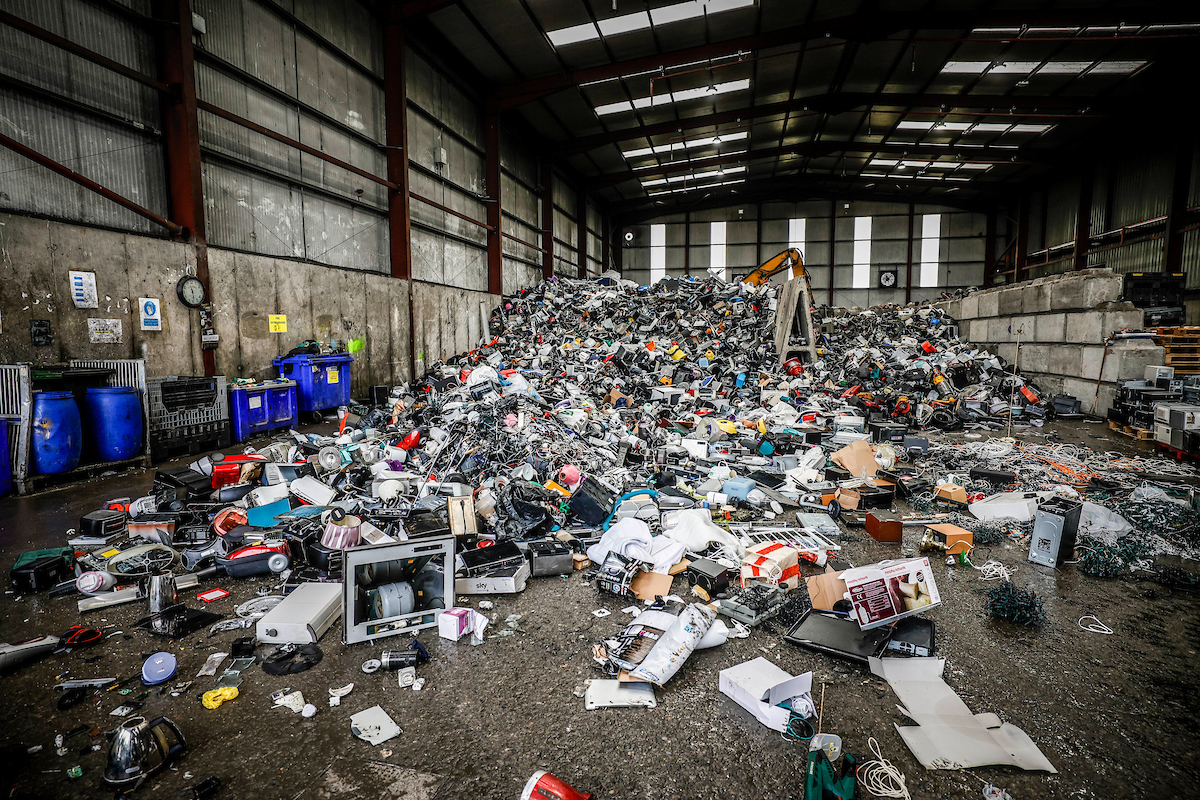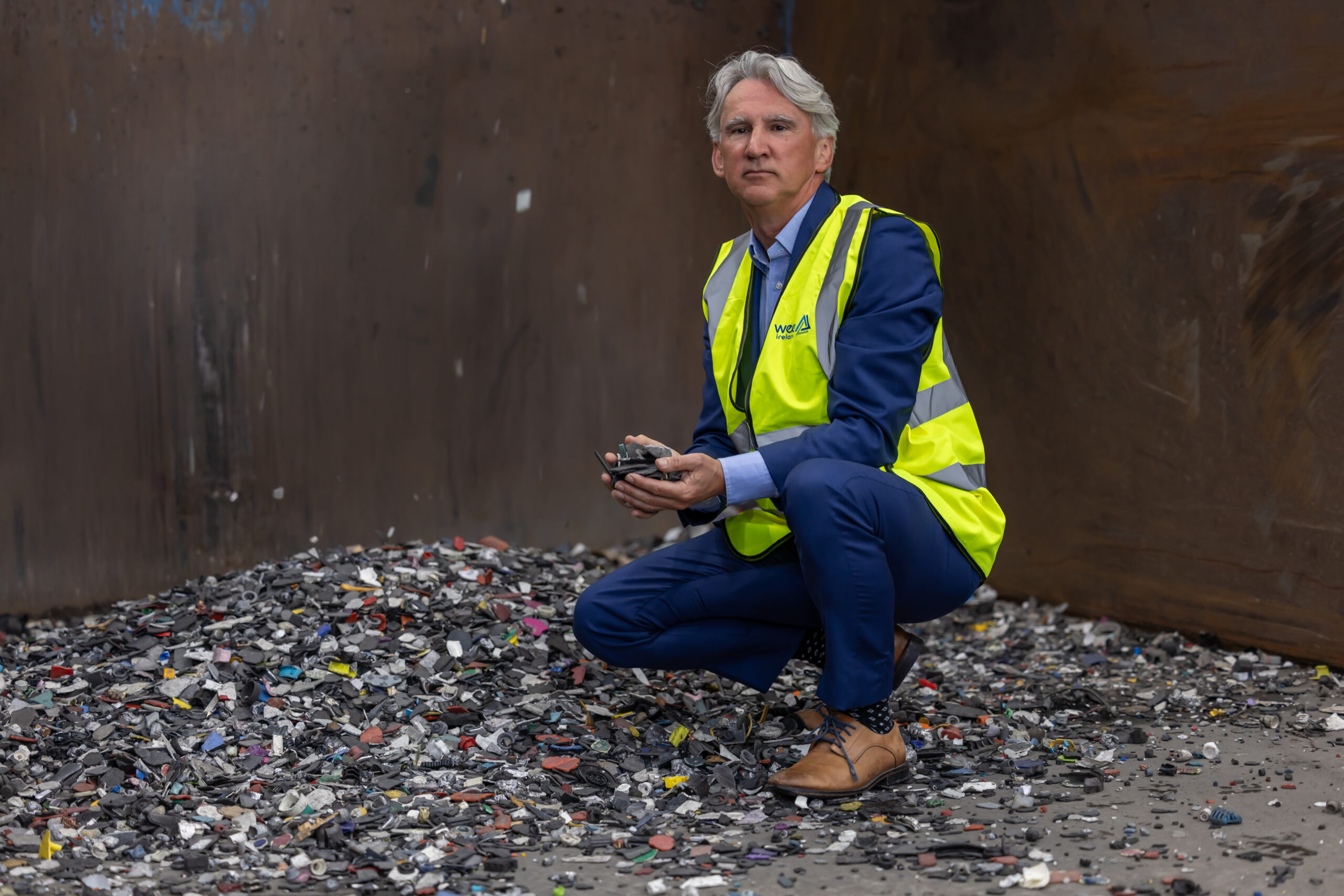Record Volume of Electrical Goods Recycled in 2023
June 17, 2024

Consumers recycled a record-breaking 41,730 tonnes of electronic and electrical waste in 2023 – the equivalent of almost 200 forty-foot containers more than the previous year, new figures reveal.
Waste Electrical and Electronic Equipment (WEEE) Ireland’s annual report shows that approximately 18.1 million appliances were collected for recycling last year – exceeding all European norms.
Despite the record takeback tally, WEEE Ireland’s CEO warns we need to recycle more critical raw materials as Ireland’s population grows – and so too does our consumption of new appliances.
“Most householders have a hidden treasure trove of broken, unused or unwanted electrical in their homes,” said Leo Donovan.
“They alone hold the key to recycling them, giving them a new lease of life so we can recover the critical raw materials they contain.”
The e-waste haul saved from landfill in 2023, up from the 40,767 tonnes collected in 2002, includes two million lighting items, a quarter of million TVs and over half a million large household appliances including fridge freezers.
A remarkable 750,000 vapes were also collected, after the national recycling scheme implemented its first dedicated takeback programme for waste e-cigarette and vapes last year through WEEE Ireland Blue Battery Boxes.
 Over 15 million small appliances such as coffee makers, calculators, kettles and keyboards, along with the equivalent of 66 million used AA batteries were also handed back to make their way into the circular economy.
Over 15 million small appliances such as coffee makers, calculators, kettles and keyboards, along with the equivalent of 66 million used AA batteries were also handed back to make their way into the circular economy.
“Over the last two decades, WEEE Ireland has developed a highly efficient, free national takeback system, enabling our country to outperform EU recovery targets,” said Mr Donovan.
“Our investment in first-class, indigenous recycling facilities ensures we fully maximise the quality and value of the resources – with over 80% of materials recovered for reuse.
“While this is a major achievement for our country, we can’t stand still, particularly when it comes to recycling small electrical products to ensure we have the materials needed for current and future product manufacturing.”
The Critical Raw Materials Act came into effect in Ireland last month, and by 2030, 25% of critical and strategic materials such as lithium, copper and cobalt must be sourced from recycling systems within Europe.
Europe currently imports 80% of its rare earth elements, gallium and magnesium, from China.
“With finite resources, it is also vital that we support Ireland’s new National Waste Development Plan transitioning from the traditional ‘take-make-use-dispose’ model to one where electrical and electronic devices are being reused or repaired as much as possible to minimise waste generation,” said Mr Donovan.
The annual report also revealed that last year, 54% of e-waste was collected from retailer sites, 26% from local authority sites and 20% from WEEE Ireland’s network of collection points.
Consumers are encouraged to bring old and broken appliances for free recycling, to their nearest local authority civic amenity centre or participating electrical retailers, with no purchase necessary.